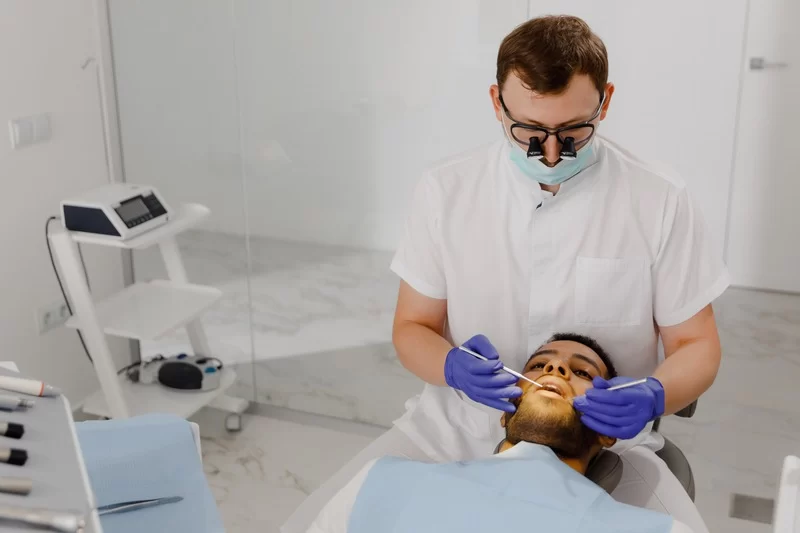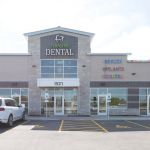
What to Do If You Experience a Dental Emergency at Night
It's an unfortunate reality that dental emergencies don't always happen at convenient times. In fact, they often occur during the night, when dental offices are closed, leaving many people uncertain about how to proceed. Whether it's a sudden toothache, a broken tooth, or an injury to the mouth, knowing the right steps to take during a dental emergency can make all the difference in preventing further damage and alleviating pain until you can seek professional care. Below, we’ll explore the best steps to take when faced with a dental emergency at night.
1. Stay Calm and Assess the Situation
The first and most important step during any dental emergency is to remain calm. Panicking only increases stress, and you’ll need to be clear-headed to deal with the situation effectively. Take a few deep breaths, and assess the severity of the situation. Is it just a minor irritation, or is it something that requires immediate attention? For example, a mild toothache can often be managed with over-the-counter pain relievers, while a knocked-out tooth requires urgent care.
2. Control Bleeding
If the dental emergency involves bleeding—such as after a tooth has been knocked out or a cut to the gums—take action to control it. Place a clean cloth or gauze on the affected area and apply gentle pressure. If bleeding continues after a few minutes, seek immediate dental help. It's important to avoid spitting, as this can increase blood flow and worsen the situation.
3. Address Pain with Over-the-Counter Medications
To manage the discomfort of a dental emergency at night, you can use over-the-counter pain relievers like ibuprofen or acetaminophen. These medications can help alleviate pain until you can see a dentist. However, avoid placing aspirin directly on the gums or teeth, as it can cause tissue damage.
4. Rinse with Warm Salt Water
If you're dealing with a toothache or a piece of food stuck between your teeth, a warm saltwater rinse can help clean the area and reduce inflammation. Mix a teaspoon of salt into a cup of warm water, and rinse your mouth gently. This can provide some relief, especially if there's swelling or irritation.
5. Preserve a Knocked-Out Tooth
If your tooth has been knocked out, time is of the essence. You have a small window of opportunity (about 30 minutes to an hour) to save the tooth. Handle the tooth by the crown (the part that’s visible above the gum) and avoid touching the root. Rinse it gently with water to remove dirt or debris, and try to place it back in the socket if possible. If that’s not feasible, place the tooth in a container with milk or a saline solution to keep it viable. Contact an emergency dentist immediately for further instructions.
6. Use a Cold Compress
If you’re dealing with swelling, bruising, or pain after an injury, a cold compress can help reduce inflammation and numb the area. Apply the compress to the outside of your mouth or cheek near the affected tooth. Be sure to use a cloth to protect your skin from the cold, and limit the application to 15–20 minutes at a time to avoid frostbite.
7. Don’t Attempt DIY Treatments
When faced with a dental emergency, it might be tempting to try and fix the problem yourself. However, it’s important to resist the urge to try DIY treatments, such as using superglue to reattach a broken tooth or using needles to remove a stuck object. These methods can cause more harm than good and might complicate professional treatment later on. Always consult a dentist before attempting anything beyond basic first aid measures.
8. Contact an Emergency Dentist
After you've taken initial steps to manage the emergency, the next thing to do is contact an emergency dentist. Many dentists offer emergency care or can provide guidance on what to do until you can be seen. If you can’t find a dentist who’s available at night, visit your local emergency room for assistance. Keep in mind that certain conditions—like infections or severe trauma—require immediate professional intervention to avoid long-term damage.
9. Avoid Eating or Drinking on the Affected Side
Until you can get professional treatment, it’s a good idea to avoid eating or drinking on the side of your mouth that’s affected. This can prevent further irritation and damage, particularly if the tooth is cracked, broken, or exposed. Stick to soft foods and be cautious about drinking anything that might cause additional discomfort.
10. Prevent Future Emergencies
While dental emergencies can happen at any time, there are some preventative measures you can take to minimize the risk. Always wear a mouthguard when playing sports, avoid chewing on hard objects, and maintain good oral hygiene to prevent infections or cavities that could lead to emergencies. Regular check-ups with your dentist can also catch issues early and prevent more serious problems down the road.
Real-Life Example: Sarah's Midnight Toothache
One common dental emergency is the dreaded midnight toothache. Sarah, a busy professional, had just wrapped up her long day when a sharp, throbbing pain started in her molar. She initially thought it was just a mild discomfort, but as the minutes passed, the pain intensified. She remembered a tip she had read about rinsing with salt water and decided to try that. To her relief, the rinse provided some relief. However, she knew she couldn’t ignore the pain and needed professional help. She called her dentist's emergency number, and although they couldn’t fit her in right away, they provided advice on managing the pain until her appointment the following morning.
Her dentist later explained that Sarah had developed a deep cavity that had reached the nerve, causing the severe pain. The dentist was able to treat the issue, and Sarah learned a valuable lesson about not ignoring dental problems, even in the middle of the night.
Conclusion
Dental emergencies can be stressful and unsettling, especially when they occur at night. However, by following the right steps, you can manage the situation until you can seek professional help. From controlling bleeding to preserving knocked-out teeth, these steps can make a significant difference in the outcome of your dental emergency. Remember, it’s always better to be prepared and informed, as a little knowledge can go a long way in managing unexpected dental issues.







 Hall Orthodontics5.0 (150 review)
Hall Orthodontics5.0 (150 review) Dentists of South Pasadena4.0 (124 review)
Dentists of South Pasadena4.0 (124 review) Topline Family Dental4.0 (259 review)
Topline Family Dental4.0 (259 review) Springfield Kids Dental5.0 (184 review)
Springfield Kids Dental5.0 (184 review) LA Dental Clinic4.0 (262 review)
LA Dental Clinic4.0 (262 review) Precision Oral Surgery and Implants4.0 (127 review)
Precision Oral Surgery and Implants4.0 (127 review) The Importance of Oral Health Education During Pregnancy for a Healthy Pregnancy
The Importance of Oral Health Education During Pregnancy for a Healthy Pregnancy Best Tips for Brushing Your Teeth Properly for Healthy Gums: Essential Techniques for Oral Health
Best Tips for Brushing Your Teeth Properly for Healthy Gums: Essential Techniques for Oral Health Why Skipping Dental Checkups Can Lead to Bigger Oral Health Problems
Why Skipping Dental Checkups Can Lead to Bigger Oral Health Problems Advantages of Porcelain Dental Restorations
Advantages of Porcelain Dental Restorations How Can Diabetes Cause Tooth and Gum Problems? Preventing and Managing Oral Health Issues
How Can Diabetes Cause Tooth and Gum Problems? Preventing and Managing Oral Health Issues Healthy Habits for Promoting Good Oral Health and Hygiene: Tips for a Healthy Smile
Healthy Habits for Promoting Good Oral Health and Hygiene: Tips for a Healthy Smile